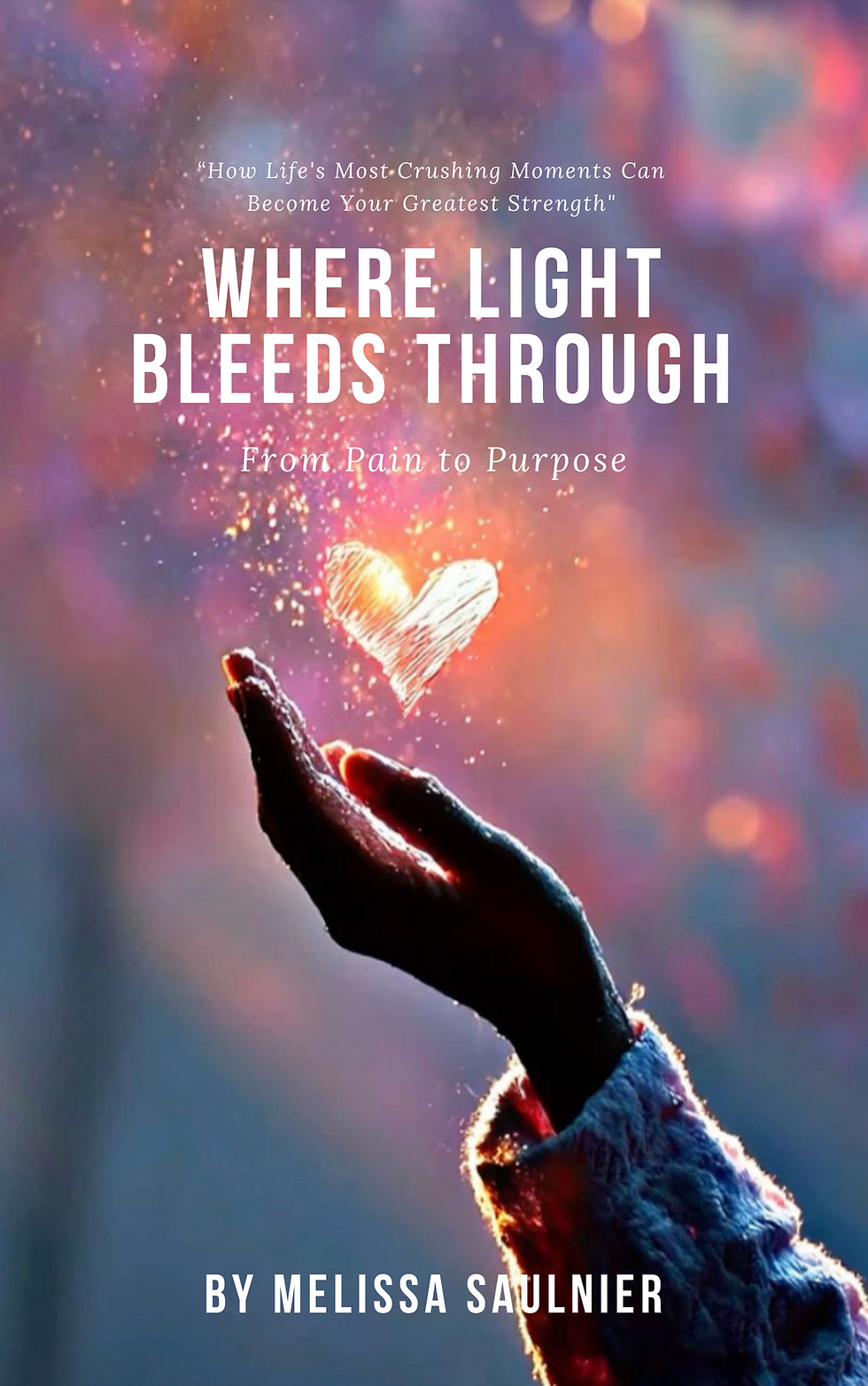The Sacred Work of Self-Forgiveness: When You Made Things Worse
- Melissa Saulnier
- Aug 28, 2025
- 5 min read

This is perhaps the most painful question anyone in recovery from abuse can ask, and the most important one to answer honestly.
You’re facing the brutal reality that many of us must confront: while you were absolutely a victim of abuse, you also recognize that your own dysfunction, trauma responses, and unhealthy patterns may have escalated conflicts, prolonged toxic cycles, or contributed to the chaos that defined your relationship.
This isn’t about taking responsibility for the abuse itself, that belongs entirely to your abuser. But it is about taking responsibility for your own actions within an already destructive situation.
The Complexity of Survival
First, understand this: people in abusive situations don’t respond from their healthiest selves, they respond from their survival selves.
When you’re living in chronic fight-or-flight mode, when your nervous system is constantly activated, when you’re walking on eggshells while also being systematically torn down, you don’t make decisions from a place of wisdom and wholeness. You make decisions from a place of trauma, fear, and desperation.
Your “mistakes” likely included things like:
• Fighting fire with fire instead of walking away
• Using manipulation when direct communication felt too dangerous
• Making threats you couldn’t or shouldn’t follow through on
• Staying when you should have left, or leaving and returning repeatedly
• Escalating arguments instead of de-escalating them
• Engaging in revenge behaviors that compromised your own integrity
• Enabling the abuse by making excuses or covering for your abuser
• Using your children as weapons or shields in the conflict
• Making financial or legal decisions from emotion rather than wisdom
The Prison of Self-Condemnation
Here’s what happens when we focus solely on our mistakes within abusive situations: we become imprisoned by our own condemnation. We think:
“If I hadn’t fought back so hard, maybe it wouldn’t have gotten so bad.”
“If I had been stronger and left the first time, my children wouldn’t have seen all that chaos.”
“If I hadn’t stooped to his level, I could maintain my moral high ground.”
“If I had handled it better, maybe I could have fixed it.”
This self-condemnation serves no one—not you, not your children, not your healing, and certainly not your future relationships. It keeps you stuck in the past, reliving scenarios you can’t change, torturing yourself with “what ifs” that will never lead to peace.
The Path to Self-Forgiveness
1. Separate Your Actions from Your Worth
Your worth as a person is not determined by your worst moments or your most dysfunctional responses. You are not the sum total of your survival strategies, even the ugly ones.
You were a broken person in a broken situation trying to survive with broken tools. That doesn’t make you a bad person, it makes you human.
2. Understand Trauma Responses
Many of the behaviors you’re ashamed of were actually trauma responses:
• Fight response: Screaming, physical retaliation, verbal attacks
• Flight response: Leaving and coming back, threatening to leave, emotional withdrawal
• Freeze response: Shutting down, going numb, failing to protect yourself or others
• Fawn response: People-pleasing, enabling, taking blame to keep peace
These responses aren’t character flaws, they’re your nervous system’s attempt to survive perceived threats.
3. Grieve Your Limitations
You need to grieve the person you couldn’t be in that situation. You couldn’t be the perfect victim who responded with grace and dignity at every turn. You couldn’t be the wise woman who made all the right choices. You couldn’t be the strong person who left before it got bad.
You were who you were, with the tools you had, doing the best you could manage in an impossible situation.
4. Take Inventory Without Taking on Shame
Make a realistic assessment of your actions without drowning in shame about them:
Things I did that I’m not proud of:
• List them honestly
• Identify what trauma response or dysfunction drove each one
• Acknowledge how they may have hurt others or yourself
• Recognize what you’ve learned from each one
Things I need to make amends for:
• Apologize to your children if your behavior harmed them
• Make financial restitution if possible
• Rebuild trust through consistent new behavior
• Forgive others you may have wronged in your desperation
5. Learn the Lessons
Your mistakes aren’t meaningless if you extract wisdom from them:
• What patterns do you need to break?
• What trauma responses do you need to heal?
• What boundaries do you need to learn to set?
• What healthy relationship skills do you need to develop?
• How can you respond differently in future conflicts?
The Grace You Need to Give Yourself
Here’s the grace you need to extend to yourself: You survived. Despite all your mistakes, all your dysfunction, all the ways you made it harder than it had to be, you survived. Your children survived. You’re here, trying to heal, trying to do better.
That’s not nothing. That’s everything.
You don’t have to be a perfect victim to deserve compassion. You don’t have to have handled everything with grace to deserve healing. You don’t have to have been blameless to deserve love, including love from yourself.
Moving Forward
Self-forgiveness isn’t a feeling, it’s a choice. It’s the daily decision to:
• Stop punishing yourself for being human under inhuman circumstances
• Learn from your mistakes without living in them
• Develop healthier patterns moving forward
• Show yourself the same compassion you’d show a friend in your situation
• Believe that your worst moments don’t define your worth or predict your future
A Prayer for Your Healing
God, I bring you my shame, my regret, my recognition of how my own brokenness contributed to the chaos I was trying to escape. I don’t understand all the ways trauma warped my responses, but you do. Help me separate taking responsibility for my actions from taking on condemnation for my worth. Show me how to learn from my mistakes without living in them. Grant me the grace to forgive myself the way you have already forgiven me. Help me use my experience, all of it, even the parts I’m ashamed of, to help others find healing and hope. Amen.
The Truth That Sets You Free
The truth is this: You were both wounded and wounding. You were both victim and someone who sometimes responded poorly to victimization. You were both deserving of love and capable of unloving behavior.
This complexity doesn’t disqualify you from healing, it makes your healing more necessary and your eventual testimony more powerful. Because when you can own all of who you were and choose all of who you’re becoming, you give others permission to do the same.
Your mistakes don’t define you. Your survival does. Your willingness to grow does. Your choice to break cycles does. Your courage to seek healing does.
You are forgiven, by God and now, finally, by yourself.




Comments